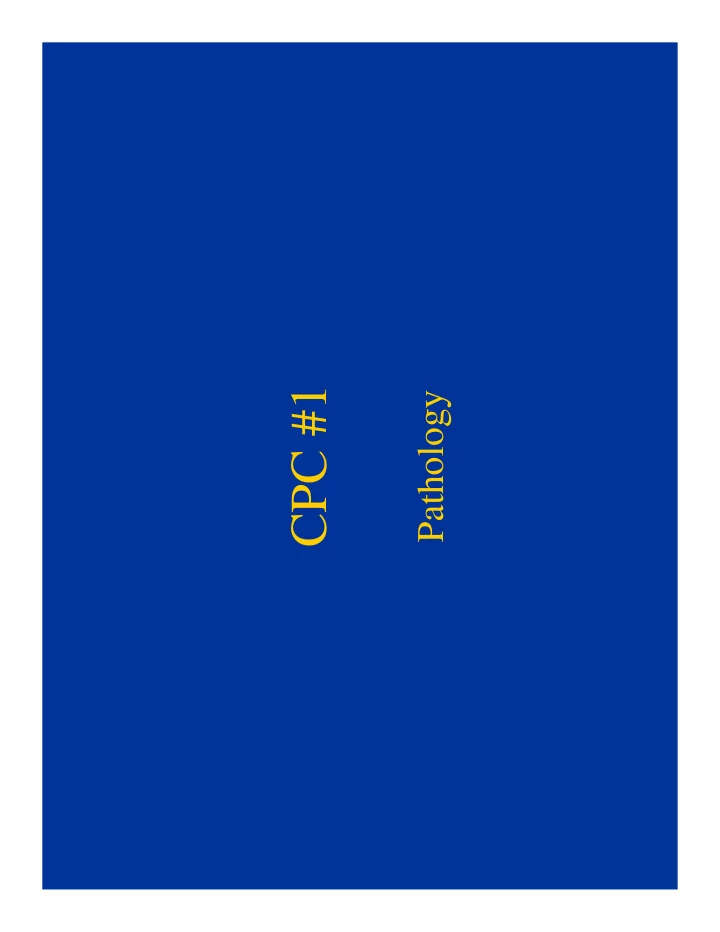

CPC #1 Pathology
Right lung (unfixed)
Multiple nodules in left lung (fixed)
Left lung (fixed)
Multiple Pulmonary Nodules • Vascular – Vasculitis (Wegener’s) – Pulmonary infarction • Infection – Bacteria • Mycobacteria – Fungus • Neoplasms – Primary • Benign • Malignant – Metastatic
Malignant Neoplasms • Carcinomas • Sarcomas • Melanoma • Germ Cell Tumors • Leukemia/Lymphoma
Characterizing an Poorly- Differentiated Malignancy • Immunohistochemistry – Stain slides with antibodies to proteins that are specific to certain cell types • Electron Microscopy – Special microscope for extremely high resolution • Genetics – Cytogenetics – Molecular Biology
CD20 (B cell marker)
CD20 (B cell marker)
CD3 (T cell marker)
Ki-67 (Proliferation marker)
Diffuse Large B Cell Lymphoma Diagnosis
DIAPHRAGM IMPLANT
DIAPHRAGM IMPLANT
EPIDIDYMIS
EPIDIDYMIS
HEART-RIGHT ATRIUM
HEART-RIGHT ATRIUM
LEFT VENTRICLE
Diagnosis • Diffuse Large B Cell Lymphoma, involving – Lungs (bilateral nodules) – Middle Mediastinum – Paratesticular soft tissue (bilateral) – Diaphragm – Heart • Cardiomegaly • Atherosclerosis, Aorta
Extranodal Lymphoma • Lymphoma arising outside of lymph nodes – Lymphocytes normally circulate – Found in small numbers in virtually all organs • 25% of Non-Hodgkins lymphomas are extranodal • Uncommon in Hodgkins lymphoma
Common Extranodal Lymphomas • Low Grade – B cell • Mucosa Associated Lymphoid Tissue (MALT) type – Stomach (H. pylori) – Salivary gland (Sjogren’s syndrome) – Thyroid (Hasimoto’s thyroiditis) – T cell • Mycosis fungoides of skin
Common Extranodal Lymphomas (cont) • High Grade – B cell • Diffuse Large B Cell Lymphoma – Common sites include lung, GI tract, CNS – Can be solitary or multifocal – Can be associated with immunosuppression • Burkitt lymphoma – Commonly involves ileocecal area in children – T cell • Peripheral T Cell Lymphomas
Summary-Key Points • Diffuse Large B Cell Lymphoma is the most common high grade extranodal lymphoma • Differential diagnosis of disseminated malignancy • Immunohistochemistry can be used to characterize a poorly-differentiated malignancy
Recommend
More recommend